Meeting our commitments
Commitments and enhancements overview
Before the signing of the Voluntary Resolution Agreement (VRA), TxDOT issued the Record of Decision (ROD) in February 2020, detailing numerous commitments to the I-45 NHHIP. Building on these commitments:
-
December 2022: TxDOT entered into separate Memorandums of Understanding (MOUs) with the City of Houston and Harris County. These MOUs introduced enhancements to specific commitments outlined in the ROD, addressing key local priorities.
-
March 2023: TxDOT and the Federal Highway Administration (FHWA) formalized the VRA, further reinforcing and expanding on these commitments.
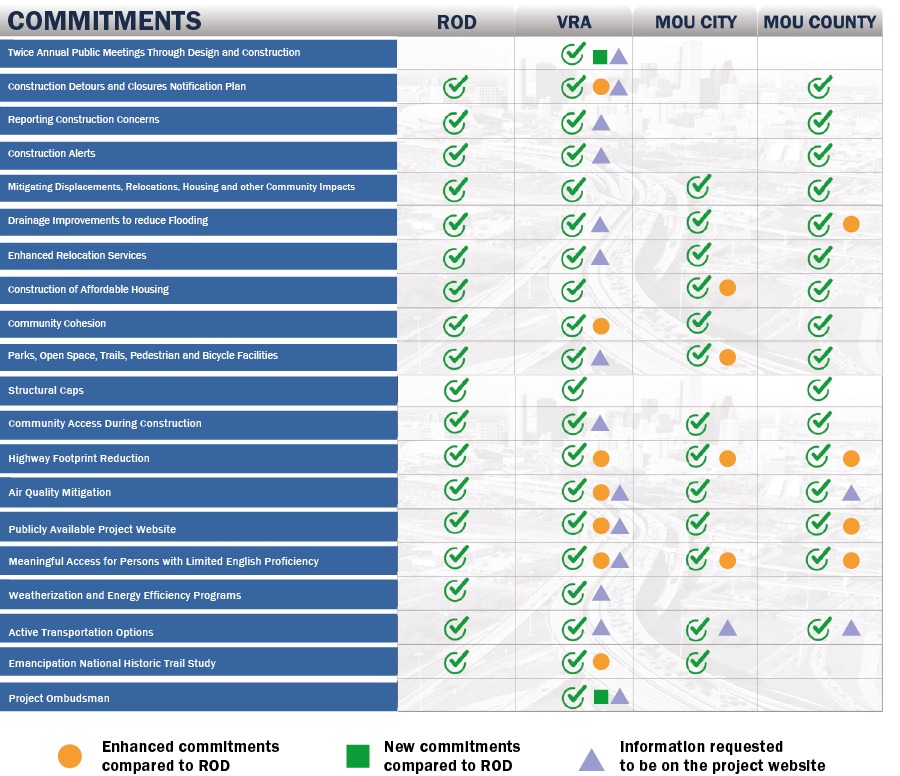
The chart above highlights TxDOT’s original commitments and the enhancements introduced through the ROD, MOUs, and VRA, highlighting the ongoing efforts to address community and stakeholder concerns.
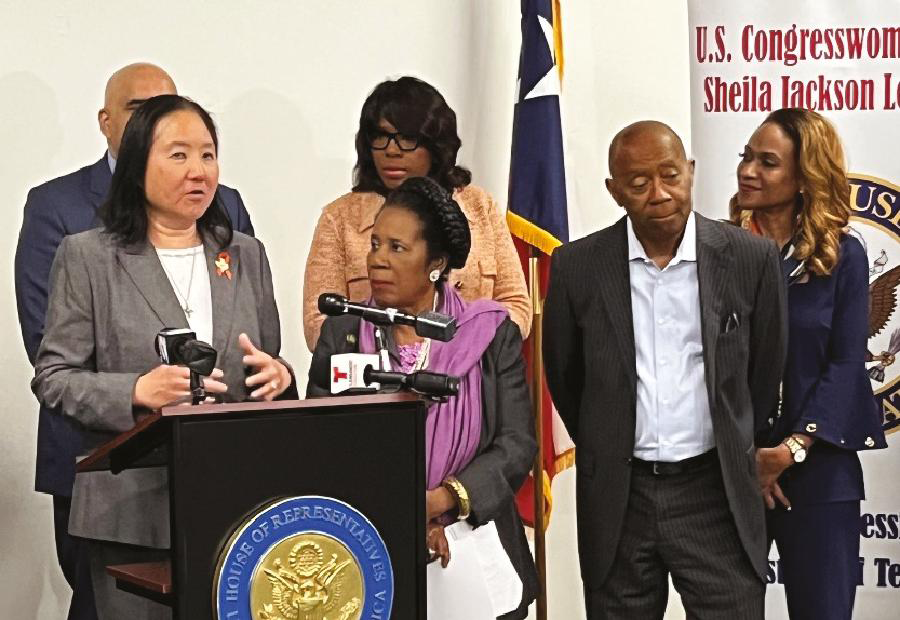
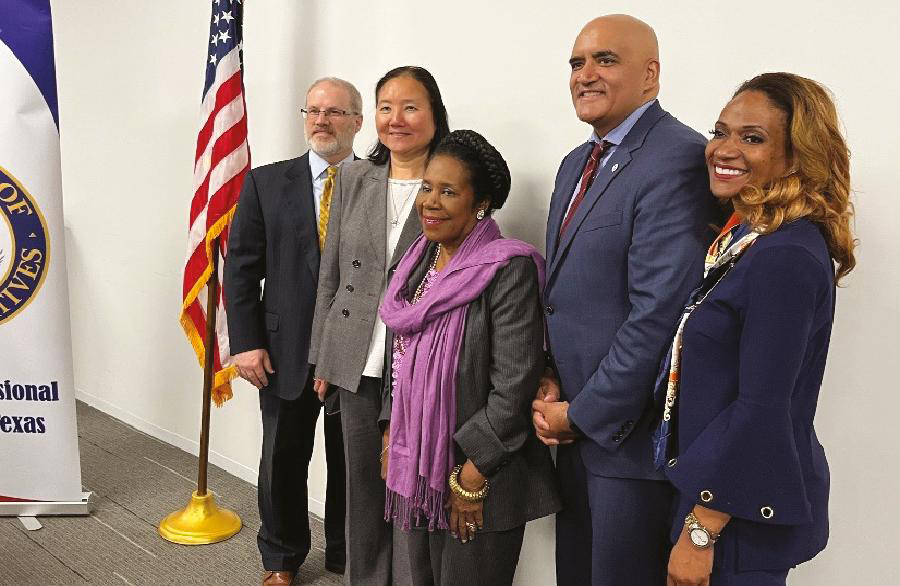
What is the Voluntary Resolution Agreement (VRA)?
The Voluntary Resolution Agreement (VRA) is a formal agreement between the Federal Highway Administration (FHWA) and the Texas Department of Transportation (TxDOT).
Purpose and key highlights
-
Resolution of investigation: The VRA resolves an investigation by FHWA into TxDOT’s compliance with Title VI of the Civil Rights Act of 1964, which prohibits discrimination based on race, color, or national origin, as it pertains to the I-45 North Houston Highway Improvement Project (NHHIP).
-
No violations identified: The FHWA found no Title VI violations in its review.
-
Project development resumes: The VRA lifted the pause on the project, allowing TxDOT to resume all project development activities.
-
Mitigation commitments: TxDOT agreed to specific mitigation actions to address potential impacts from the project.
-
Enforceable timelines and monitoring: The agreement includes enforceable timelines and oversight by FHWA to ensure TxDOT adheres to Title VI requirements.
-
NEPA compliance: FHWA concluded its review of TxDOT’s responsibilities under the National Environmental Policy Act (NEPA) with no findings of noncompliance.
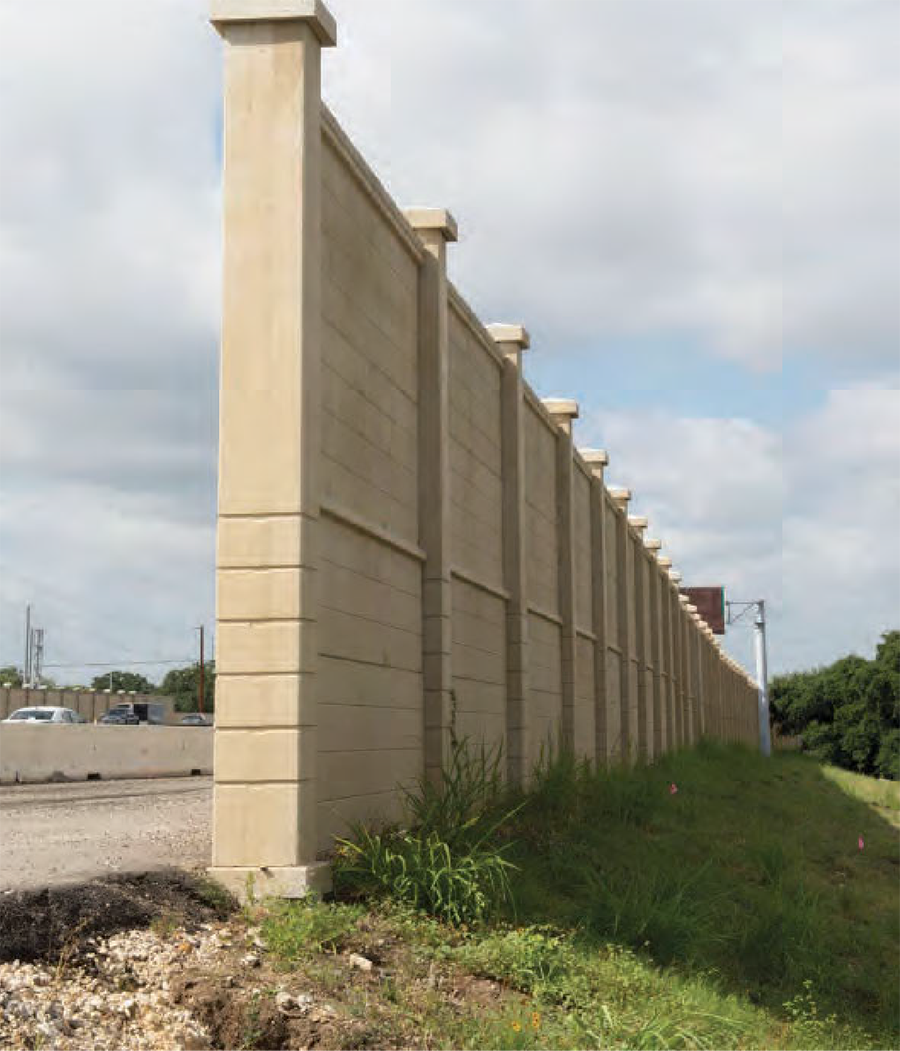
I-45 low-income construction noise & dust mitigation program
Purpose:
This program is designed to help low-income households in project areas mitigate construction-related impacts such as noise and dust.
Benefits:
-
Strengthening homes: Funding allows homeowners to enhance their homes' barriers, reducing noise and dust intrusion.
-
Improved air quality: Households can purchase air filtration products to maintain better indoor air quality during construction.
This program demonstrates TxDOT’s commitment to minimizing construction impacts on vulnerable communities.
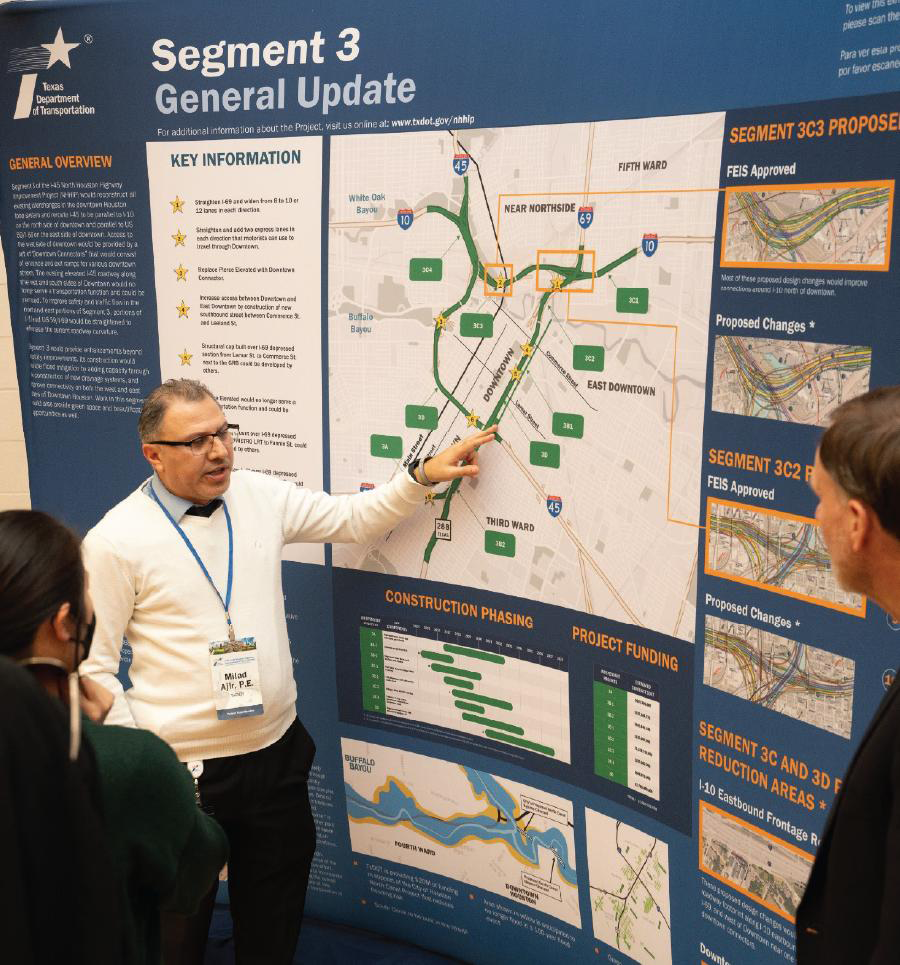
Community outreach meetings
Community outreach is central to the NHHIP’s public engagement efforts, involving a wide array of stakeholders to build consensus:
-
Elected officials and agency partners: Collaboration with local, regional, and state leaders.
-
Neighborhood homeowners associations and civic clubs: Engaging directly with local communities to address concerns and share updates.
-
City of Houston super neighborhoods: Targeted outreach to super neighborhood councils.
-
Economic development groups: Partnering with organizations to understand and mitigate project impacts on local businesses.
-
Tax Increment Reinvestment Zone (TIRZ) boards: Engaging TIRZ boards to discuss funding and project enhancements.
-
Management districts: Coordination with management districts to address localized concerns.
-
Other interested organizations and stakeholders: Ensuring community involvement by inviting participation from other relevant groups.
This structured approach ensures that multiple perspectives are represented and that stakeholder and community input shape the development of the I-45 NHHIP.
Standing & special call interagency coordination meetings:
Brings together representatives from TxDOT, the City of Houston (COH), Harris County, and METRO to align efforts and discuss interagency priorities.

Stakeholder groups
Specialized stakeholder groups:
-
NHHIP housing & community focus group: Focused on addressing housing and community impacts associated with the project.
-
NHHIP traffic steering committee: Reviews traffic patterns and offers guidance on optimizing mobility.
-
Stakeholder Engagement work group: Enhances collaboration with impacted stakeholders.
-
Strategic Communications work group: Develops communication strategies to inform and engage the public effectively.
-
Changing modes of transport work group: Explores and plans for shifts in transportation preferences and modes.
-
Traffic flow work group: Focused on improving traffic flow and mitigating congestion throughout the corridor.
Specialized programs and initiatives:
-
NHHIP enhanced relocation specialists: Dedicated to assisting displaced residents and businesses during the project.
-
NHHIP affordable housing grant program: Administered by the Texas State Affordable Housing Corporation (TSAHC) to support housing solutions for affected communities.
Regional collaboration:
-
Houston-Galveston Area Council (HGAC) Transportation Policy Council: Ensures regional policy alignment and coordination.
